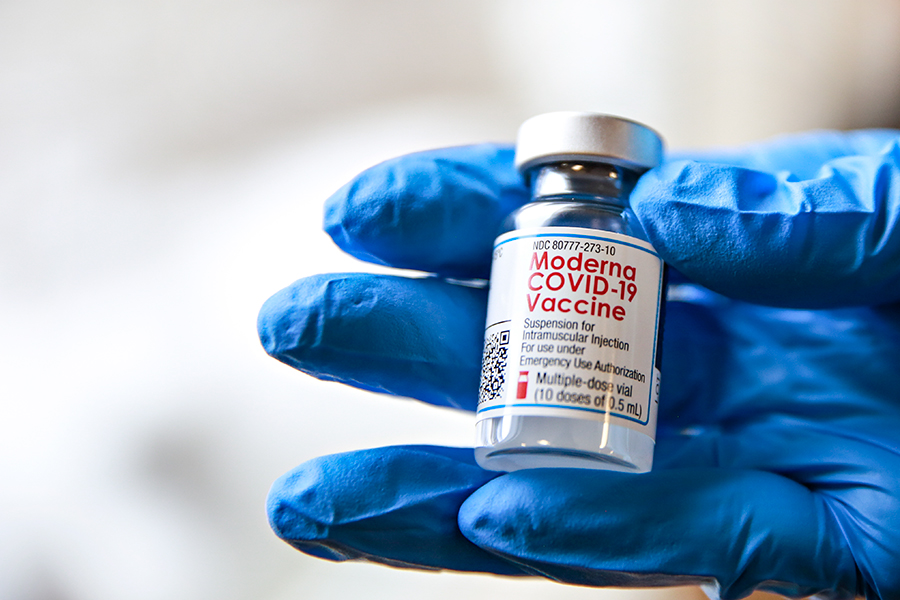State Prioritizes Over 70, Underlying Conditions for Vaccine
Gov. Greg Gianforte said he instructed the state health department and his COVID-19 task force to revise the vaccine distribution plan
By Amy Beth Hanson, Associated Press
HELENA — Montana’s new plan for distributing the COVID-19 vaccine now prioritizes people age 70 and older and those with specific underlying health conditions to receive the second round of vaccines, drawing criticism from advocates for groups including teachers and those living in congregate care settings who have been shuffled to the third phase.
Gov. Greg Gianforte on Tuesday said he instructed the state health department and his COVID-19 task force to revise the vaccine distribution plan to protect the most vulnerable.
After a review of recent COVID-19 activity, hospitalizations, deaths and vaccine resources, the state is prioritizing vaccine delivery to those most at risk of severe complications due to COVID-19, the state health department said Wednesday.
The specific health conditions that would make people ages 16 to 69 eligible for vaccines in the second phase include: cancer, chronic kidney disease, chronic obstructive pulmonary disease, Down syndrome, heart conditions, a weakened immune system from organ transplant, severe obesity and diabetes.
Amanda Curtis, president of the Montana Federation of Public Employees, criticized the changes.
“For nine months now, educators and front-line workers across the state have been doing everything possible to keep our schools open and our economy moving,” Curtis said Tuesday. “These Montanans have risked their own personal health and some have even died.”
The decision “to delay the ability of teachers, school employees and other front-line workers to receive vaccines is unfortunate and a slug in the gut to thousands of heroic Montanans,” Curtis continued.
Dee Metrick, the executive director of Reach Inc., which runs group homes for people with developmental disabilities in Bozeman, said she’s concerned that people in congregate care settings outside of nursing homes and long-term care facilities will also see a delay in being vaccinated.
While she was glad to see Down syndrome on the list of underlying conditions, she was concerned that other developmental or intellectual disabilities were not specifically listed, including autism.
“A majority of our clients can’t wear masks, don’t understand the precautions or know how to take them,” Metrick said, noting that up to a dozen people a day are in their residences providing close, personal contact care such as help with eating, bathing, dressing and using the toilet.
“Just the nature of the care that we provide puts our clients at higher risk,” she said. “They can’t just shelter in place and have no contact with outside people because they need outside people for care.”
The state vaccine distribution plan does allow, on a case-by-case basis, for medical providers to recommend vaccines for people with other conditions that put them at risk of complications due to COVID-19.
The American Civil Liberties Union of Montana opposed the decision to move correctional facilities from the second to the third phase of vaccine distribution.
“Those who are incarcerated live in extremely close quarters where social distancing is impossible,” said Caitlin Borgmann, executive director of the ACLU of Montana. “They often lack adequate nutrition, health care and access to fresh air and proper hygiene measures.”
The Department of Corrections has reported outbreaks in seven facilities, including 479 cases in the Montana State Prison in Deer Lodge and 299 at the Crossroads Correctional Center in Shelby. Six inmates have died.
Data provided by the state health department indicate 421 residents of assisted living or long-term care facilities have died of COVID-19. Through Dec. 25, 675 of the state’s coronavirus deaths, or nearly 75%, were people ages 70 or over, which would also include residents of assisted living and long-term care facilities.
In December, then-Gov. Steve Bullock included people ages 75 and older in the second phase of vaccines, along with those in congregate care and correctional facilities, and front-line workers such as first responders, teachers and child care workers, U.S. Postal Service employees and grocery store workers.
People with high-risk medical conditions were included in the third phase under Bullock’s vaccine plan.